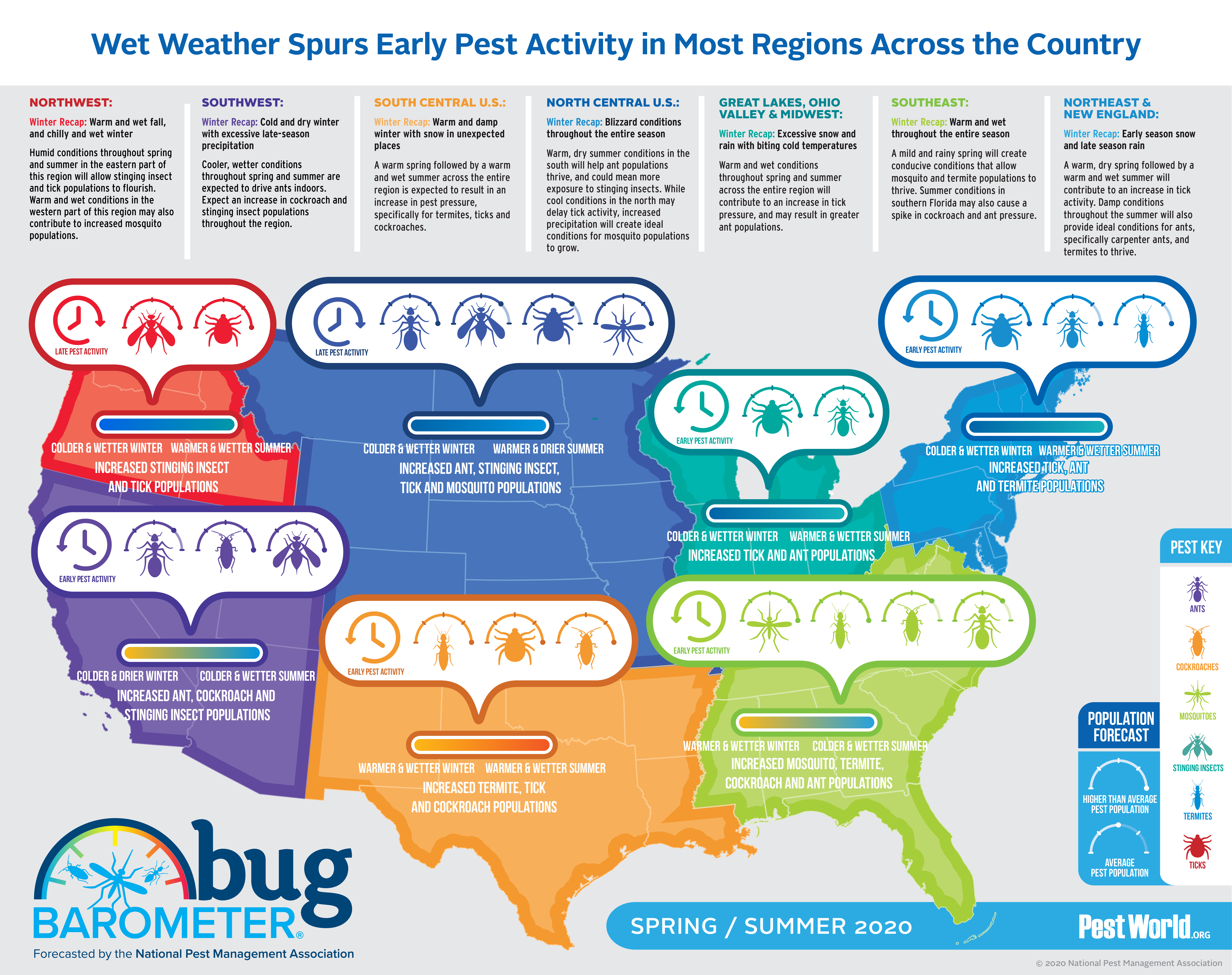How Winter and Spring Weather Determines What Summer Bugs Will Be In Your Yard
Bugs are a part of our ecosystem, and that means they’re just as affected by a particularly hot, rainy or dry season as any other critter. According to the National Pest Management Association’s Bug Barometer, you may see more or less of an insect during the summer based on winter and spring’s weather. Being aware of this can come in handy as you’re getting ready to protect your home and yard from pests.
Look at it this way: if you can predict which bugs might be paying you a visit based on the previous season’s weather, you can better prepare for them before they arrive. Now that we’re officially transitioning from spring to summer, we’ll be using this year’s Bug Barometer to break down what insects you can expect to see and what you can do to get rid of them before they cause any trouble.
Warm, Dry Spring + Warm, Wet Summer
Warm, dry weather gives pests like ticks, ants and termites the ideal conditions to rapidly populate, but the following summer rain floods them out of their homes and into yours.
Mild, Wet Spring + Warm, Wet Summer
Mosquitoes love to breed in the pools of water a rainy season leaves behind. When it warms up, those same rainy conditions can lead to a spike in cockroach and ant visibility, too.
Warm, Wet Spring + Warm, Wet Summer
Warm and wet conditions throughout spring and summer cause an increase in almost all unwanted pests: ticks, ants, cockroaches and termites. In rainier areas, expect more mosquitoes. In humid areas, expect more stinging insects.
Warm, Dry Spring + Warm, Dry Summer
Warm, dry spring conditions help ant populations thrive. If the weather was warm and dry throughout both seasons, expect to see more stinging insects, too.
Cool, Wet Spring + Cool, Wet Summer
Cooler, wetter conditions throughout spring and summer are known to drive pests like ants and cockroaches indoors.
Note: In terms of what bugs we see, bug population increase and bug visibility are two different things. While an insect population might not reproduce more under certain conditions, those same conditions, say, excess rain, can drive them out of their homes and into yours. So, while ants may not have reproduced as much during a rainy season, you might see more of them because of flooding.
Give Us a Call
The pests are coming — call Arrow today and we’ll get your home prepped against any potential summer invaders!






 YouTube
YouTube Facebook
Facebook Twitter
Twitter Instagram
Instagram